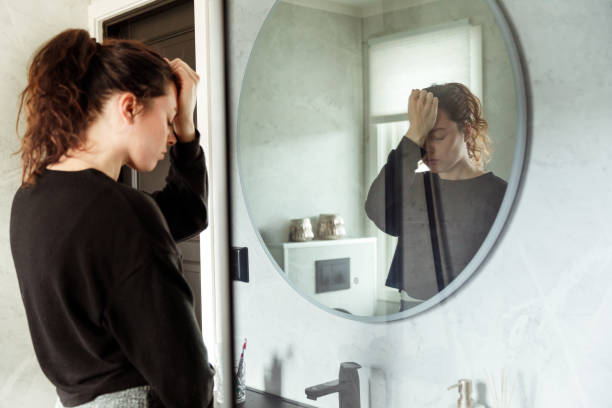
Most adults have a bad dating story or an experience. These stories may range from the anecdotal to the bizarre to the downright horrible. Looking back, most people admit that they can “see the red flags” in hindsight. Sometimes, we shake our heads at ourselves or laugh it off. Sometimes, these stories take a long while to process and unpack; sometimes, they change us completely. Over time, we may better identify personality traits that might indicate that there could be trouble ahead if we pursue a relationship with the person. We might evaluate someone with a lot of these triggers as “a walking red flag,” as the saying goes.
But there are some red flags that people keep hidden until it’s too late. This situation is worse because most of us will have unknowingly fallen for the red flags. We may feel deceived or tricked. An example of this is dating someone who is non-responsive; they or you may make excuses for it initially, but later find that it’s an entire pattern. Or the person may not have acted one way at first and later changed their behavior. There are also red flags that we might not identify as red flags, and our partner might not, either, until it’s clear that there is an issue.
What are red flags?
Red flags are signs and clues that things might not work for us. A red flag can be a personality trait, a habit, a way someone speaks about certain subjects, or any other indicator that might

catch our attention.
What you might find to be a red flag might not be a red flag for others, and vice versa. Some people may have an experience with an ex who always worked late and find career-driven people to be a red flag, for example. Some red flags are commonly-accepted: violence, infidelity, dishonesty. Others may involve aspects of the relationship, as opposed to the actions of each individual, such as a decrease in physical intimacy or inconsistent communication. Because every one of us is an individual with individual boundaries, we will also have individual “red flags” that signal us to watch out or be wary.
Why do we ignore some of the red flags we come across?
The most common answer is that we ignore red flags because we want to. Whether we really like the person or are tired of being single, it’s tempting to put our blinders on. I’m sure we’ve all seen the memes online about how “if he has x, the red flags start to look more pink.” X, in this case, can signify any of our favored traits: a good sense of humor, dimples, an impressive job, or a specific height.

When I say “we want to ignore red flags,” I don’t mean that dealing with red flags is simple. Sometimes, we want to ignore red flags because we hope things will change, or we’re in denial that there is a problem.
We may have invested a lot in our relationship, perhaps even sacrificed for it, and can’t handle the idea of it not working out after all that we have done. That may be more than we can stand; at certain times of our lives, we may cling to relationships because we need something to work out for us.
At our therapy practice in Woodland Hills, it is very common to spend time discussing codependency and unhealthy attachments in therapy. If you struggle to walk away from situations that aren’t improving despite your efforts or continue to ignore red flags, you may want to talk to someone about how you can support yourself in meeting your needs more productively.
Another reason we ignore red flags is that we don’t realize that they are red flags! You might think that that’s impossible, but it’s actually easy to understand once you think about it. We have been conditioned to see the “big issues” as red flags; abuse, cheating, lying, etc. Many of us can also attest to being gaslit about our red flags, called picky or neurotic when we say that a certain attribute doesn’t work for us or puts us off. If you’ve had this experience, I am sorry. Everyone deserves to feel heard and respected when they have personal aversions to behaviors.
3 Red Flags in Relationships That Most People Don’t Realize are Red Flags and How to Turn Those Flags Green!
1. You two never argue:
We often think not arguing is a sign of compatibility because we have been taught “good relationships don’t have arguments.” We believe that any

disputes or disagreements indicate not being on the same page, not having the same ideals, or just not “vibing.” So you might wonder: how is not arguing a red flag?
Not having an argument might be a warning sign of a lack of honest communication. Are you two really agreeing, or is someone ignoring his/her/their own boundaries? Are you two not arguing, or is one of you refusing to be honest? Is the space between you a safe one in which to admit to discomfort or pain?
Not having an argument might also indicate a lack of communication, period. Forget whether it’s healthy – are you two talking about things? Do you discuss the future, politics, and current events? These can be polarizing subjects; avoiding them to avoid any potential disagreements is not the way to get along.
This is not to say that you have to be arguing if you’re talking. What I mean is that the goal can’t and shouldn’t be never to have an argument, but rather, to make sure to have healthy and safe arguments and disagreements. Ideally, most of your arguments are about resolving resolvable issues or emerging out of trying to work out our plans or compromises. Or maybe they’re about things that don’t ultimately matter, like which film should have won Best Picture at all the awards shows this year. Being able to argue with respect and honesty is a strong indicator of a good relationship; if you never argue, is it because one or both of you can’t trust the other not to “take it too far”? Is one of you constantly tempted to hit below the belt? Biting your tongue is not the same as agreeing or getting along.
2. You have a lot in common:

You may think that having shared interests and hobbies is what makes your relationship strong. While that is true on some level, you want to be mindful of how those shared interests are being practiced. Having a lot in common is a common hidden red flag because we get excited about being able to do lots of things with our partner and forget that the more we do with our partner, the less time we have to do things on our own or with our other loved ones.
If you are in a relationship where you are spending all of your time together and engaging in all activities together, this may be a problem in the future. When couples spend all of their time together, they start to unknowingly neglect other social relationships in their lives. No matter how happy your relationship is, it should not be the only relationship in your life. It shouldn’t even be the most important relationship in your life – that spot is reserved for your relationship with yourself.
The goal isn’t to always share the exact same interest but to share the underlying value. For example, I enjoy meditating and doing yoga, which my husband tried once and never resumed. He instead loves to run, swim, or ride his bike (he is getting ready for a triathlon). As you can tell, our chosen activities are quite the opposite: where I like quiet and slow-paced activities, he loves high-intensity exercises. While on the outside, we may look like we don’t share the same interest, at the core of it, we value the same thing: having a mind and body connection. We both value having alone time where we are connected to our bodies. We both enjoy activities that help us take care of our physical health. We aren’t going to the same place and taking a class together, but we are still connected by our physical hobbies.
3. You never talk about your ex-partners or have anything good to say about them:
I know this is a tricky subject because there are so many preferences when it comes to talking (or not talking) about past relationships. Whether you are a couple who likes to talk about your past relationship once and be done with it or have had multiple conversations, the point here isn’t how often you talk about your exes, but how you talk about them.
There is no way to know how your partner talks about their/her/his ex(es) without actually hearing your partner talk about them. This is why you have to have the conversation

– or these conversations.
While it is a romantic notion to know that we are the most compatible and the best partner our loved one has had, it is also alarming if our partner has nothing good to say about their past relationship. I get it, the past relationship ended for a reason, and it brought the two of you together. Still, I would vary of someone who constantly talks negatively about their past relationships. After all, they dated this person for a reason. If you were to recognize and honor the good parts of your ex-partner, it would not mean that you miss them or wish you guys were back together.
Being able to reflect openly and honestly about past relationships is a sign of having moved on from them. If a partner has too much emotion still wrapped up in that past person, it’s a good sign that there is still work to be done there. It may involve moving on from an ex; it can be hard to think that our partner is struggling with that, but it is good to know. The issues may also involve doing personal work on personal triggers, such as abandonment issues or having an anxious attachment style. This is work that will benefit your relationship now; hiding these feelings by avoiding talking about exes is a recipe for discovering the issue when it’s a big issue.
Can red flags be fixed?

Many people think that red flags are a sign that there is nothing to salvage or no reason to invest in the relationship. That isn’t true.
Red flags signal that there is something that needs attention. It may be something that can’t be compromised, but it likely means that something that can be changed needs to change to have a successful relationship. This might be something that you need to work on, the other person needs to work on, and/or you need to work on together.
Depending on what kind of red flags you might be having in your relationship, your issues could be worked on with the help of a couple’s therapist. Couples therapy and marriage counseling are common tools utilized by partners to maintain and improve their relationships. As with all therapy, it is important to take accountability for what we bring to the relationship; couples’ therapy will give you tools and tricks that may involve individual work and a team effort with your partner.
The question you need to ask yourself is: do you want to fix it?
The red flags we just talked about are fairly benign; having an awareness of them can definitely be beneficial. Bigger red flags, or red flags linked to behaviors that you have

communicated about without seeing improvement, might be the final straw for you. You may come to a point where you feel that the best choice for you is to exit the situation. I’m not going to judge you if a relationship that isn’t good for you doesn’t work out. Ideally, if you do want to work on some issues, your partner will, too. And if things still don’t work out, I hope that you have a strong and loving support system around you to help you through.
Other Services at Embracing You Therapy
Here a Embracing You Therapy, we invite you to explore with us how life would be different if you had more control over your thoughts and emotions, and we invite you to consider that it is possible to accept things just as they are, embracing imperfections to create a gentler place for calm in your life.
Let’s learn what drives your unique perspective on anxiety and stress. Then, let’s find the tools-your unique tools that help you respond to life in a healthy, calm way. Contact us today for your complimentary 15-minute phone consultation with one of our Client Care Coordinators.





